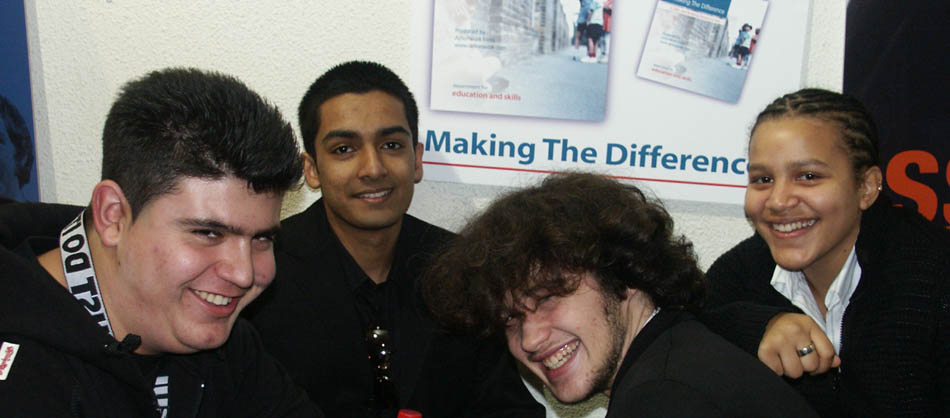Actionwork® Anti Bullying Creative Arts Centre
An Anti-Bullying Creative Arts Centre?
Who has ever heard of such a thing? Yes it's new, it's cutting edge, it's dynamic, it's powerful, it's creative and it will be one of the most empowering spaces available in the UK today to help those suffering bullying, whether as someone who is being bullied, someone who is a bully or a friend or family member of someone who has to deal with bullying.
We need you to help make this happen. We need you to be a part of this unique project. Please share, like and pledge. Helping us help you. You could be a part of something amazing. We cannot do it without you.
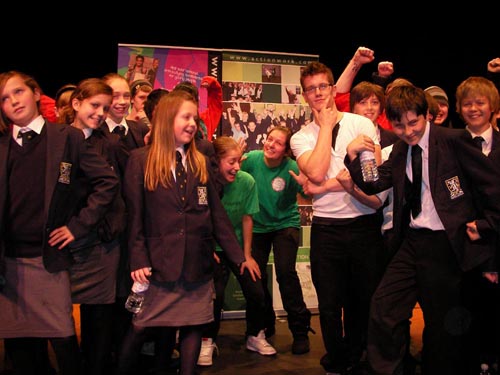
What will we do with this money that you donate?
We will build a community-led anti-bullying Creative Arts Centre in North Somerset that will help people locally and all over the country who have suffered bullying. This Arts Centre will provide a unique resource including shows, workshops, training and facilities. It will focus on building people's confidence, resilience, knowledge and general well-being. It will use positive, active and creative methods. Not only will we help people who have had difficulties finding help or resources, we will also send messages to schools, work places and communities of non-tolerance of bullying.
The Arts Centre will be an anti-bullying school of excellence: a safe and creative place where people can grow and build confidence without fear of intimidation or violence.
In tandem with our professionally trained staff, actors, counsellors and mediators we will build a force of volunteers and peer supporters that will be able to offer help, support and assistance to people of all ages, genders, ethnicities and abilities.

We have supporters from a wide variety of backgrounds including celebrities, young people, teachers, community leaders, actors, musicians, poets and dancers who will advise, teach, help and spread words and actions of positivity, creativity and empowerment.
If we feel good about ourselves, if we are happy people we are less likely to get bullied and we are less likely to bully other people.
Can Actionwork® deliver an amazing Arts Centre?
Actionwork® has over 25-years experience of dealing with bullying across the UK. We tour to schools, youth centres and work within a wide variety of communities with our award-winning creative anti-bullying programmes.
We have won several awards for our work including the Anti Bullying Flame Award presented to us by Celebrity Big Brother winner Denise Welch and Emmerdale actor Danny Miller. The judges highlighted the fantastic contribution Actionwork® has made to the lives of thousands of families across the UK and abroad and in particular our:
- creative sustainable projects
- anti-bullying training
- INSET
- conferences
- film projects
- theatre and peer support projects
Actionwork® is a core member of the Anti Bullying Alliance (ABA), a member of the Society for Intercultural Education Training and Research (SIETAR) and a member of the International Observatory of Violence in Schools (IOVS). Actionwork has performed anti-bullying shows and run workshops in thousands of schools across the UK and abroad, made films for the UK Government, the Anti-Bullying Alliance and many schools and organisations around the UK, worked with the UK Government, the French Government and the Government of Gibraltar on a variety of anti-bullying programmes, conferences and trainings. Actionwork® succesfully produced the UK's first and largest national anti-bullying conference for young people and the world's first anti-bullying festival.
How do the creative arts help deal with bullying?
You can read an independant evaluation of Actionwork® undertaken by the University of Plymouth here: Actionwork® Evaluation. It's not just anecdotal evidence that shows us that theatre and creativity can help people deal effectively with bullying. There are also a whole host of scientific research papers and publications that demonstrate how the performing arts and interactive creative workshops help people deal with bullying. If you would like to read some of the scientific evidence please see a special section at the bottom of this page.
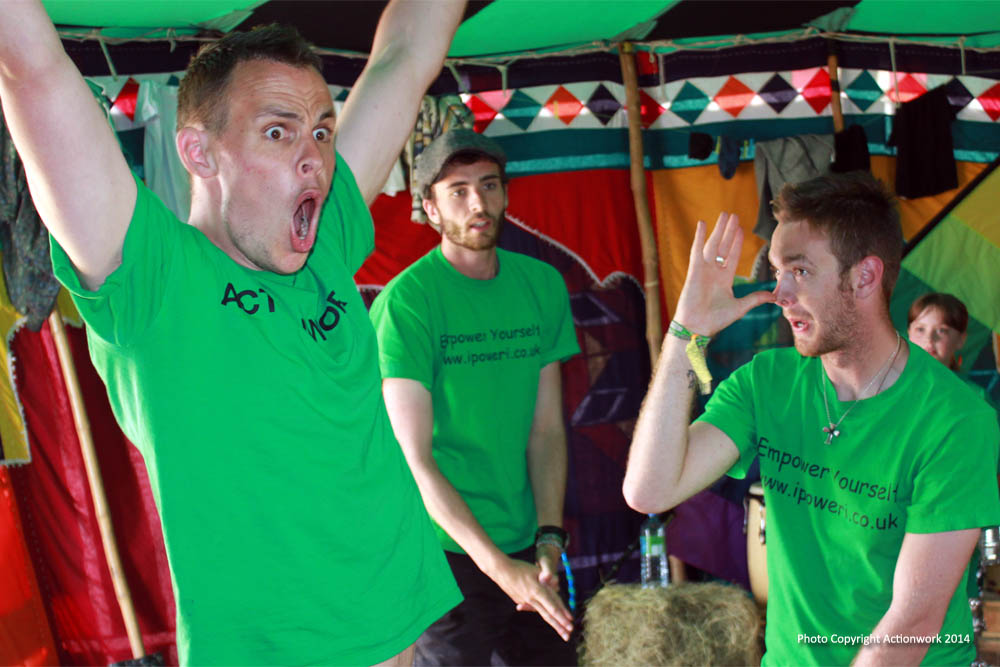
Involving the local community in the Arts
In addition to dealing with issues of bullying we hope pupils, students and young will have to access the performing arts. Schools be able to utilise the facilities and get involved in the
- creative programmes
- shows
- workshops
- they will also be able to access 'behind the scenes' including seeing what happens in a green room
- how lights and technical elemnets work in an Arts Centre, and
- how performers 'warm-up' their bodies and voices
We will invite local people to help build a programme that benefits the community and builds a strong foundation for continued support and inclusivity.
The Creative Arts Centre aims to be eco friendly which includes the
- building of recycling points
- earth loos
- up-cycling interiors
- our solar powered stages and
- vegan and vegetarian food on offer in our creative cafe
This anti-bullying Creative Arts Centre will be a powerful, colourful and empowered hub of activity and resourcefulness. We hope that you can be a part of it from the start.
So how will we start?
The lease on our present arts centre has lapsed and we have to move. We have currently raised £50,000 in-house and from a small bank loan but we still need another £35,000 to buy an old building that we will convert into this arts centre. This £85,000 will be used to purchase the building. We will then use our team of volunteers and supporters to turn the old building in to the fabulous Arts Centre. We have allowed 6-months for this all to happen. If we raise more than the £35,000 target we will use any additonal money in the conversion of the Arts Centre and in delivering Anti Bullying projects to the community.
We have offered a range of rewards for your donations, hopefully there is something for everyone. We would be happy to discuss other options if there are any major sponsors out there who would like to either play a role, join forces wth us, collaborate, share, promote or would like to talk about other sponsorship options and rewards. We would love to hear from you: Lets start a dialogue.
This Arts Centre will be unique in what it will offer:
- anti-bullying training for people that have been bullied
- anti-bullying training for bullies to help them change their bullying behaviour
- shows and workshops highlighting the effects of bullying
- resources to help people deal with bullying
- exciting activities to engage hard-to-reach people with difficult behaviours
- a cafe and meeting point for parents, teachers, young people and others interested in the creative arts and creative empowerment programmes or just wanting a place to chill, relax and chat
- specialist training programmes for teachers and other professionals helping them deal with bullying
- anti-bullying in the workplace resources and training packages
- a library of anti-bullying and confidence raising books free to use for anyone in the community
- open community engagement evenings/days
- master classes with leading professionals from around the world
- a youth theatre group
- a youth management group
- inviting shows and theatre groups from around the world
- showcasing the best of British talent
- and a whole lot more.
An Arts Centre for the community by the community in the community. Please help us realise this fantastic opportunity to build a unique Centre of excellence that will spread seeds of empowerment and creativity to thousands of people, families and communities. Thank you.
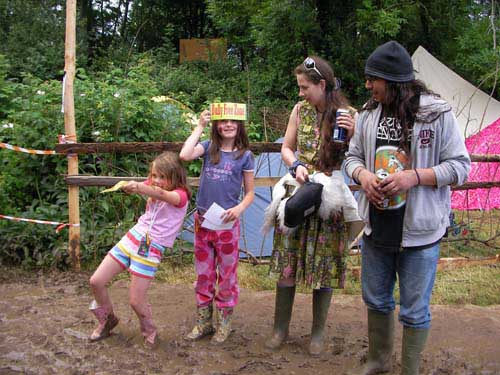
What evidence is there that the Creative Arts help people deal effectively with bullying?
To deal with difficult issues such as bullying we need a device that is dynamic and that can help evoke change in people’s interactions with each other. Schechner suggests that theatre controls and transforms problematic human interactions (1988) and therefore is very useful to us in using education as social action (Torres on Freire in McLaren and Leonard, 1993). Theatre is physical, it engages the body and the voice; it returns the energy to the world in the form of a performance, as a creative, interactive force, rather than in the form of disconnected destructive discharge (Reisner, 2002. p. 16).
Play and role-play
The concept of play is fundamental in the work we do. Play is essential for childrens’ cognitive development and helps the development of social competence (Saracho & Spodek (eds), 1998). Social and creative play demands cooperation, helps create order out of disorder, prepares people for real life experiences, and helps test out boundaries. Everyone agrees that play is often fun but play is always linked to serious issues (Schechner, 1988). Games help us practice strategies to overcome difficulties we might have in life (Boal, 1992). The use of narratives and symbolic play can help young people to understand their own experiences, to communicate these experiences to other people (Cowie and Jennifer, 2008) and to gain insight into the experiences of others.
Creative approaches, particularly those that encourage interaction with characters, participation in plot development and reflection on outcomes, such as symbolic play, narratives, role-play, drama and virtual reality, have direct application to the issue of bullying (Cowie and Jennifer, 2008). Creative activity with a small ‘c’ forms an integral part of the process of personal growth, and is an expression of that process. It has to do with whether what one creates truly reflects one’s own inner experience and resources. For the creative artist the process of creativity is important and has to do with introspection, making, forming, inventing, discovering, meaning making and many others (Gordon, 1983).
Creativity
Vygotsky (2004) argued that any human action that gives rise to something new should be referred to as a creative act, regardless of whether what is created is a physical object or a mental or emotional construct that lives within the person who created it and is known only to him (p. 7).
Evidence suggests that allowing, developing and nurturing personal creativity in one field can improve how we approach other subjects. Robinson (Robinson and Aronica, 2009) tells us the story of Gillian Lynne who told him that she did better in all her subjects at school once she had discovered dance. Creativity is the process of taking our imagination to a new level or applying our imagination to explore problems or difficulties (Robinson and Aronica, 2009).
Action and transformation
Theatre is a transformative medium for people both as individuals and groups to maintain optimism, higher awareness and find resolutions (Jennings, 1998). In the final analysis of life there are no prescriptions; for every individual one must discover the cause, which impedes him, hampers him, and then, using theatre, create the situation in which this cause can be eliminated and the process be liberated (Growtowski quoted in Kumiega, 1987).
Actions – doing – are what make up theatre and what make up the social. Actions change the world, as Berchtolt Brecht would put it, are the stuff out of which social theatre is made (Tselikas, 2009. p. 25).
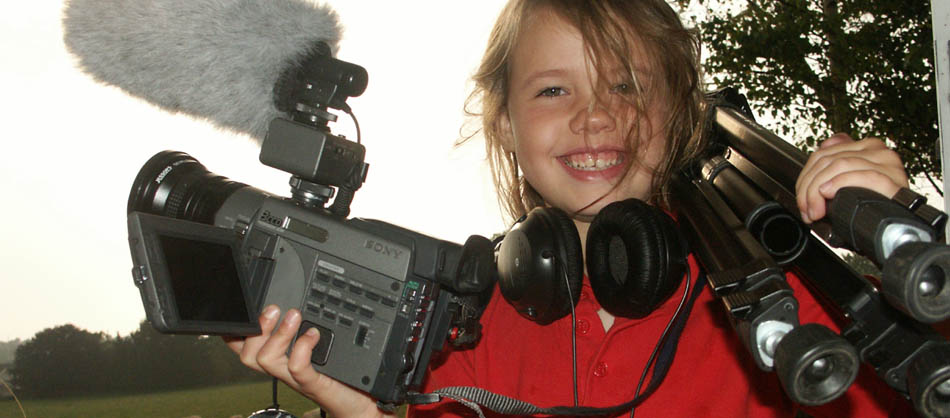
Social theatre
Social theatre and theatre-in-education not only make use of theatre and drama but also a wide range of other disciplines including dance, ritual, games, play, storytelling and fine art. There is now a widespread use of these creative arts in therapies in clinical settings (Burleigh and Butler, 1996). Psychodrama is one such example. In psychodramatic clinical settings the following and other creative arts techniques are critical in developing successful sessions: physical and vocal warm ups, role-playing, rituals, performance, doubling, mirroring, music and dance (Moreno, 1999). Creative arts are also used in play therapy (Jennings, 1993 and 1999), art therapy (Jennings & Minde, 1993) and dramatherapy (Jennings, 2009 and Jennings et al, 1994).
Creative WorkshopsAs a theatre practitioner we value the role that social theatre and theatre-in-education have in helping groups deal with issues and explore difficulties. The creative workshop, structured to explore specific issues or build skills can be an invaluable tool for researchers and educators to use.
The workshop is a way of playing around with reality, a means of examining behaviour by recording, exaggerating, fragmenting, recombining and adumbrating it. The workshop is a protected time/space where intragroup relationships may thrive without being threatened by intergroup aggression (Schechner, 1988. p. 110).
Within the workshop, participants are able to suspend reality and enter in to a process of exploration, through this process of drama and the product of theatre we can practice critical thinking, problem solving, conflict resolution, and skill building to resolve conflicts creatively without resorting to violence (Sternberg, 1998). Thus transforming any space into a place where equal rights for all participants prevail (Hickson, 1995). Creative workshops have the ability to engage on many levels and encourages experimentation, exploration and co-operation (Johnstone, 1999).
Reaching young people
Drama educators and theatre practitioners know about reaching young people through the theatre (Sternberg, 1998) in ways for example that television or film cannot. Social theatre and theatre-in-education, like theatre in general are forms of interaction, it is live, a lived performance that should be fresh every time a piece (even the same piece) is performed. Social theatre techniques make use of the dramatic imagination the as if and the make believe (Jennings, 2002). The ‘as if’ in social theatre helps us create a distance from the difficulty we are exploring, so everyone’s story is contained within the group’s story. The paradox of theatre is that by distancing we come closer (Jennings, 2002).
Dealing with and transforming conflict
Social theatre techniques allow us and indeed help us to explore with different eyes the things we do (or don’t do) when we react to tensions and conflicts (Sclavi, 2002), remembering that it is not conflict that presents problems, but how we deal with conflicts that is important (Sternberg, 1998). Theatre is physical, it engages the body and the voice; it returns the energy to the world in the form of a performance, as a creative, interactive force, rather than in the form of disconnected destructive discharge (Reisner, 2002. p. 16).
The practical use of theatre is recognised in the field of bullying prevention. Approaches that encourage interaction with characters, participation in the plot development and reflection upon outcomes, have direct application to the issue of bullying (Cowie and Jennifer, 2008. p.105).
To deal with difficult issues such as bullying we need a device that was dynamic and that could help evoke change in people’s interactions with each other. Schechner (1988) suggests that theatre controls and transforms problematic human interactions. The tools of theatre should therefore become useful to us in using education as social action (Torres on Freire in McLaren and Leonard, 1993). Performance, games, role-play, ritual and other creative practices and techniques provide us with doorways to explore ideas from fresh angles and new pathways. Through action our ideas are transported in safe and structured ways allowing for the possibility of change, learning and empowerment. Creative activity promotes reflection and assists in the development of empathy: empathy between group members and empathy with participants.
To check the references in the above evidence section and to read further about the effectiveness of theatre in helping people deal with bullying please follow this link: Theatre and Creativity References. See from page 259 for the biblography and references.
Thank you for your consideration. We hope to be working with you soon.
Actionwork® is a registered trademark. The above is Copyright © Actionwork® 2017.
Please contact us for more details.

